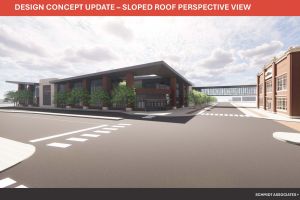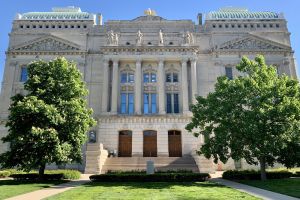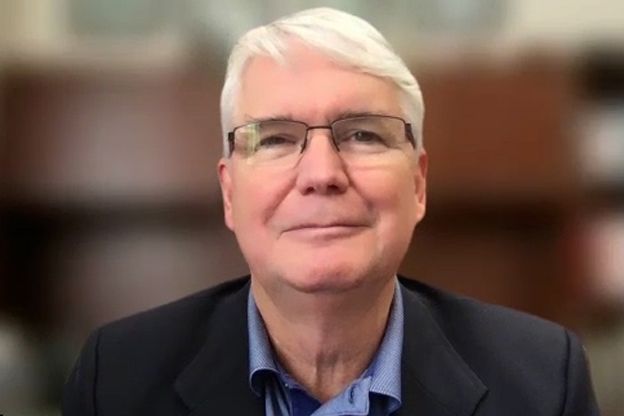
Bloomington Mayor John Hamilton (Zoom)
The mayor is still not on board with a CIB to expand the convention center. We get a preview of Wednesday night's council meeting on new police and fire headquarters, and new jail rezone.
In this week’s installment of Ask The Mayor, Bloomington Mayor John Hamilton addresses these issues and more during an interview Tuesday at City Hall. Listen to the full conversation with Indiana Newsdesk anchor Joe Hren by clicking on the play button above, or read some of the questions and answers below. A portion of this segment airs 6:45 and 8:45 a.m. Wednesday on WFIU. Here are some highlights.
This conversation has been edited for clarity and conciseness.
Hren: Let’s start with CIB vs. non-profit 501(c)(3) for expanding the convention center. City and county council voted on the county commissioner created CIB and that seems to be what governmental bodies are approving. Even with the changes city council voted on, are you still against the CIB?
Hamilton: Many of us are frustrated, it's taken so long, we really should be well under construction by now. I continue to believe that the best way to go forward is to have a city focused nonprofit that can at least design and build this new building. You know, we do a lot of things in the city, downtown and nearby, building a brand new Switchyard Park, opening a new trade district building, a new neighborhood at Hopewell, this is what we do. And I think it's my belief that the best way to do an excellent signature, really design friendly Convention Center is to let a 501(C)(3) do that.
I continue to worry that the Capital Improvement Board - it's a state created entity. It's kind of county focused, it has to have multiple oversight approvals by different city council, county council, others to make it even nearly equitable. And it's I'm just worried that that won't work very well.
Just to give you an example, if two different councils have to approve a budget, it's really complicated. Because if the first council wants to change item A, and then the second Council says, well, we liked item A, but we don't like item B, it can be very cumbersome to produce, it's already pretty hard to get public budgets passed.
Hren: Are you happy with the changes that city council voted on?
Hamilton: Some of them. We laid out 15 topics on the table, bouncing back and forth in 2019. And I think they are important, because the CIB needs to be equitable, more equitable. The problem is, the more you do that, the more cumbersome it is too and I don't think the county wants to agree to some of those. They've made clear they don't want to donate land, for example, which we think is really fundamental. So that's one of the issues with the CIB is that I don't think there's agreement really on it yet.
Hren: What's next?
Hamilton: Well, it's not clear, Joe. I'm kind of figuring out the exact next step, but we'll know in the next few days.
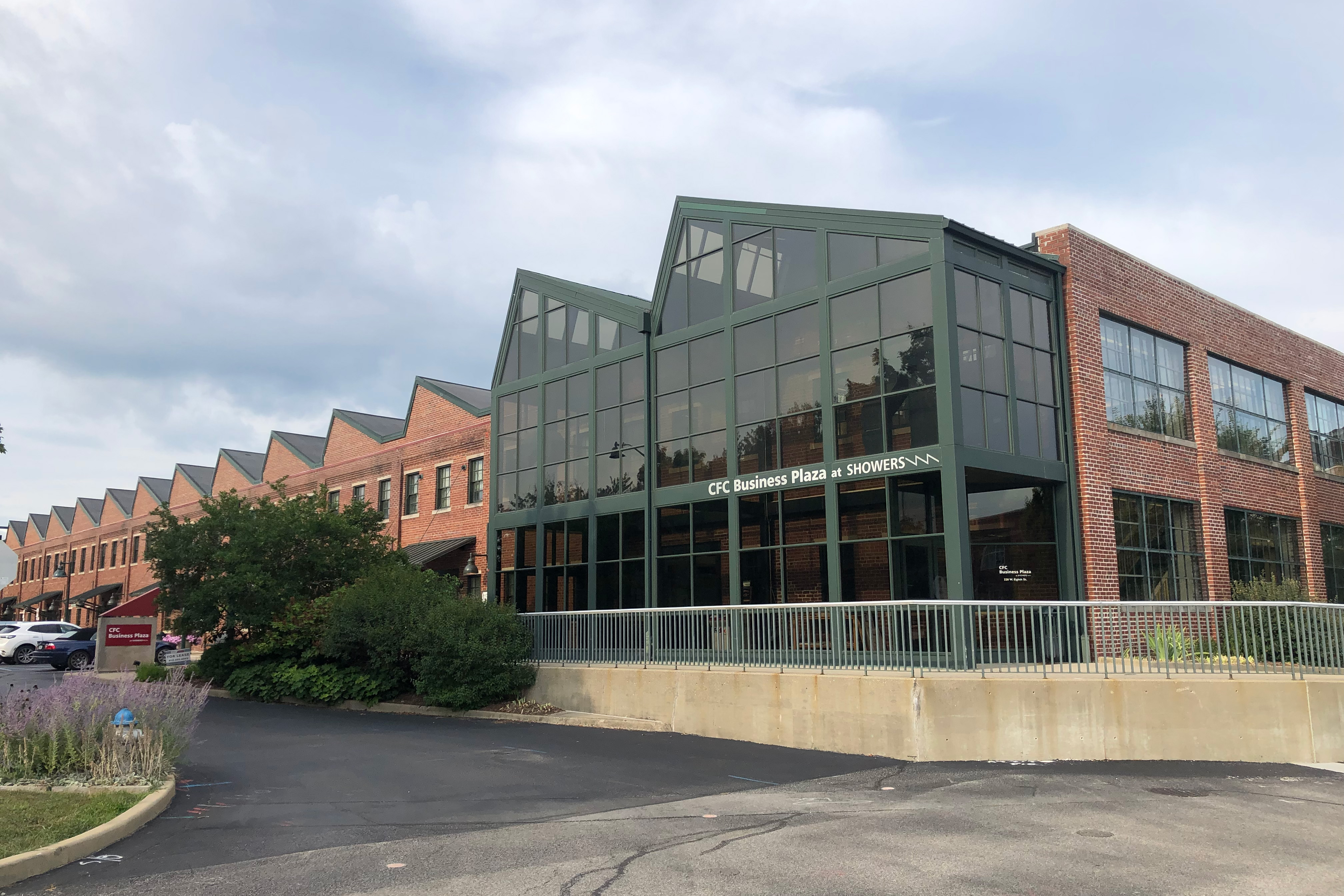
Hren: City council is scheduled to talk about obtaining more of CFC properties, which is part of city hall, for police and fire headquarters Wednesday night. What's up for discussion?
Hamilton: We hope there'll be a vote on the 21st. People remember probably the flood of a year and a half ago in June of 2021. That wiped out the fire department and flooded the police department. And since then, we've actually had to move the fire department and police departments been kind of struggling through in a very old building. And as part of the economic development local income tax, which was passed in the spring. We dedicated $2 million a year to improve public safety facilities.
I think we've got a really good opportunity to bring together police headquarters and the fire administrative headquarters in the the CFC side of Showers building. We passed bonds a week or two ago with the council. And the next step is to decide and the council needs to vote on whether we buy the showers building expansion.
READ MORE: Bloomington Redevelopment Commission approves city hall expansion
Hren: In some reporting, some police officials say the space wouldn't be sufficient enough for police work, what concerns are there and what's being done to address them?
Hamilton: The main concern we're hearing is parking of vehicles, getting the cars in and out of the police department. We think that's very manageable. And I should just explain to people because it's not obvious that police officers are typically not dispatched from police headquarters, unlike a fire department where typically you've got your engine sitting there and you've got your staff there unless they're out on training or other things. They they get the bell and they leave from the station to go respond. That's why we have five stations scattered around the city. The police departments very different. Typically officers are on patrol.
We're working with our our officers and identifying any concerns or maybe change is always challenging, but they're in a building now that has no room to expand. It's not a healthy building. Half of them are in the basement with no windows. In addition, there's plenty of room to grow for both the fire and the police in that building.
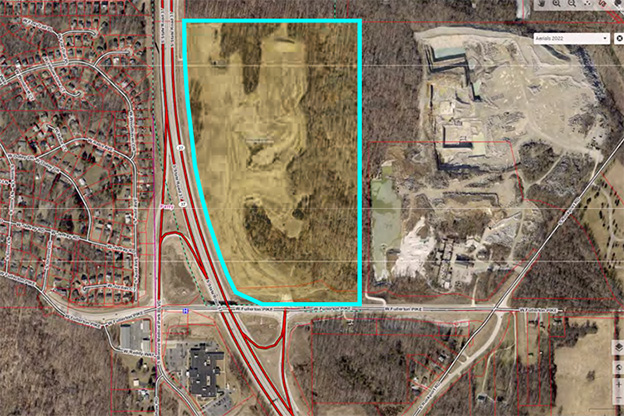
Hren: Also for vote is rezoning city land the county wants to use for a new jail. This is the location off of I-69 and West Fullerton pike - that's up for vote on Wednesday as well?
Hamilton: It is Joe. And there's kind of some technical issues that the city council has to decide on zoning that went through the Plan Commission, which is a resident led commission that oversees zoning, they recommended against the change. Our administration has tried to be just kind of a technical support on this and council has to decide that Wednesday night.
I'm not against the new jail. In terms of the location. I guess my view, Joe, is that we really first need to just discuss what should it be? We have not been at the table quite as much as perhaps would be helpful to really identify how big should the new jail be? What kind of other services are we going to invest in? How much are we going to put into the public health side into preventing services?
Hren: How much does the city council and you the administration talk about something like this?
Hamilton: Well, quite a bit. You know, there's the technical issue of should we rezone this area which has been zoned for employment basically for a place for people to work to attract employers along I-69 versus open it up for an institutional setting like this and I've kind of tried to be agnostic about that. We talked some with city council about it, but ultimately, it's it's a much bigger decision of what kind of facility do we want? How much are we investing in which pieces of this puzzle? And I think that really needs more community discussion.
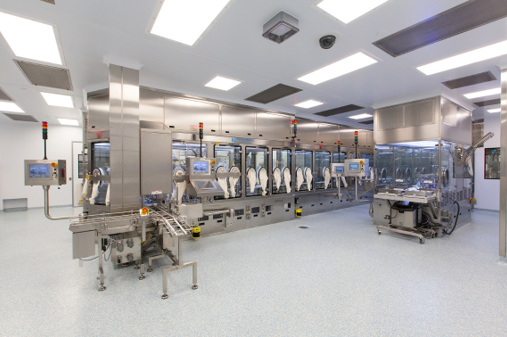
Hren: Catalent laid off about 400 people, yet the city approved tax abatements for expansion and more jobs? What happens if those jobs aren't added?
Hamilton: Catalent indicated a plan to add 1,000 jobs to the local plant here over the next several years, they continue to indicate they will be doing that. And the abatements which were used to support that decision, and to support that expansion only only happen if they do expand the jobs by that number. So there's really been no subsidy yet. And if Catalent did not succeed, and expanding, they wouldn't get any of that subsidy, that abatement.
Hren: I haven't seen anything happened on the new Trades District building, it was approved in March that was gonna go up across the street from The Mill, do you know anything?
Hamilton: There are three building things going on. In the Trades District, the one you're mentioning is the federally funded new building, which we got $3.5 million from the federal government to build. We're reengineering that because all the expenses have gone up. It's in the back office trying to figure out how to make that happen. However, the two existing buildings, the Kiln and the administration building, which kind of sit either side of the The Mill, both have been sold in the last couple of months and are going to be redeveloped by two private entities. So we've got two out of three underway.
Hren: So this is our last show of 2022 in Bloomington, what are some of the one or two big things that you're you're really happy about?
Hamilton: Let's let's start first, the fact that we now have a city wide fiber network being constructed, right as we speak - is critically important, something I worked on for a number of years, a $50 million private investment that's going to offer Fiber Internet to every household, essentially in Bloomington and an extraordinary digital equity program.
That Joe is one of the things that can really change and improve the trajectory of a household and of a community. And we actually expect the first customers to be able to sign up even next month, January, maybe February of 2023.
And the economic development local income tax, which the City Council unanimously adopted this spring is enormously important for the future of the city. It's going to change our transit system. It's going to let us invest in climate responses, in affordable housing, it's going to let us invest in public safety in new ways. And it's a game changer for our community.









